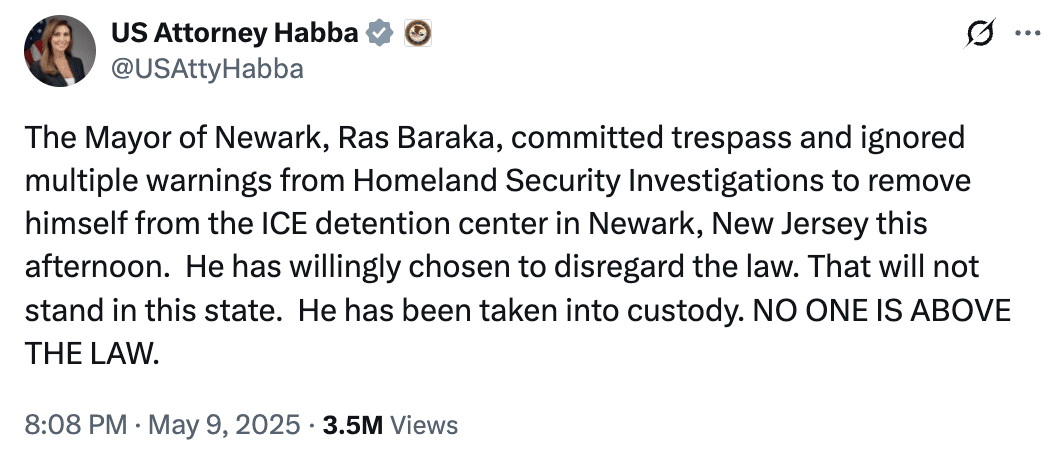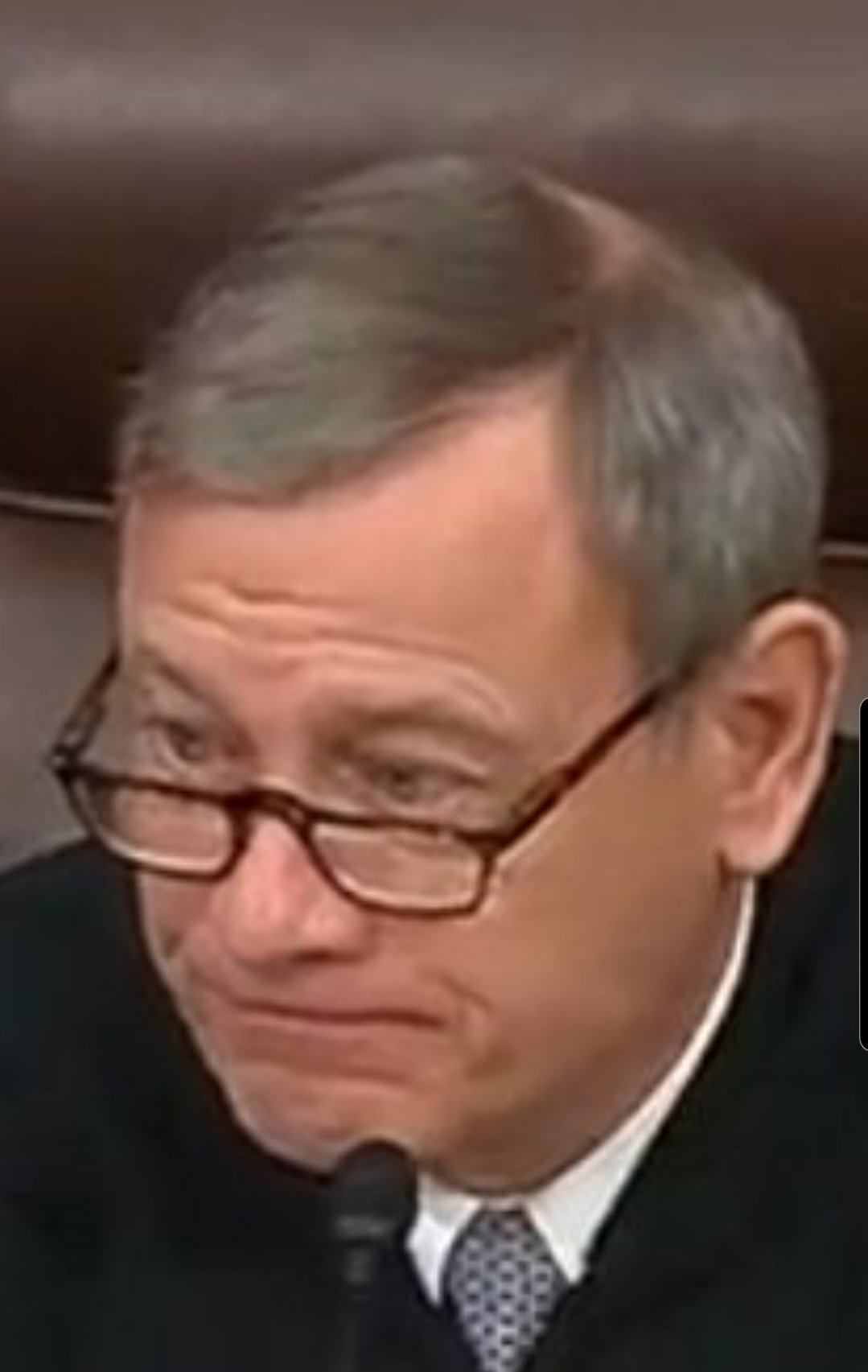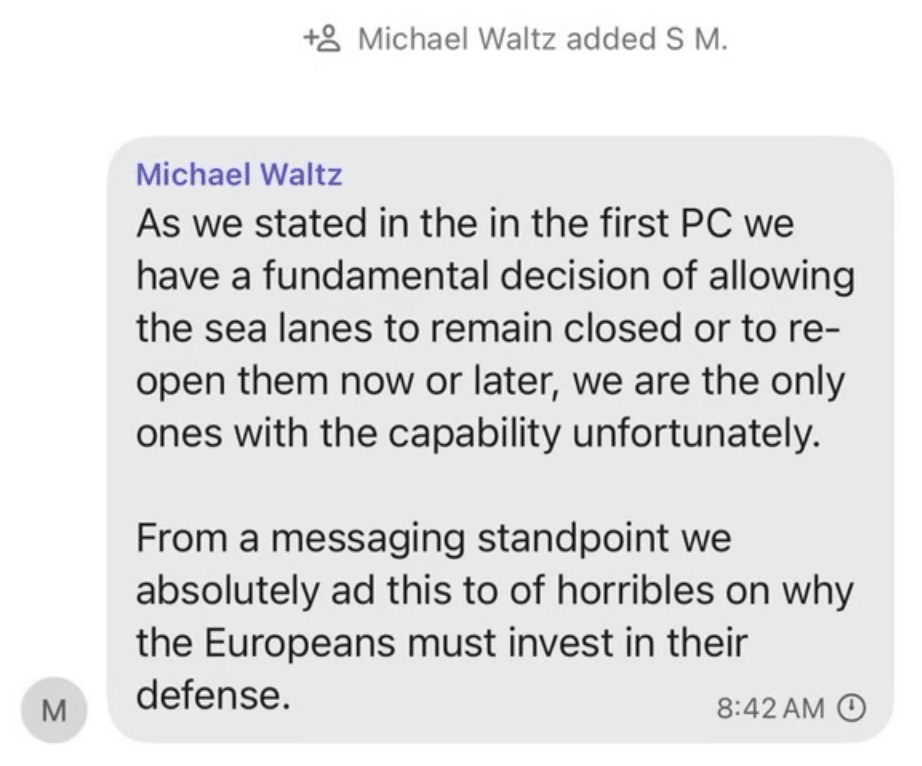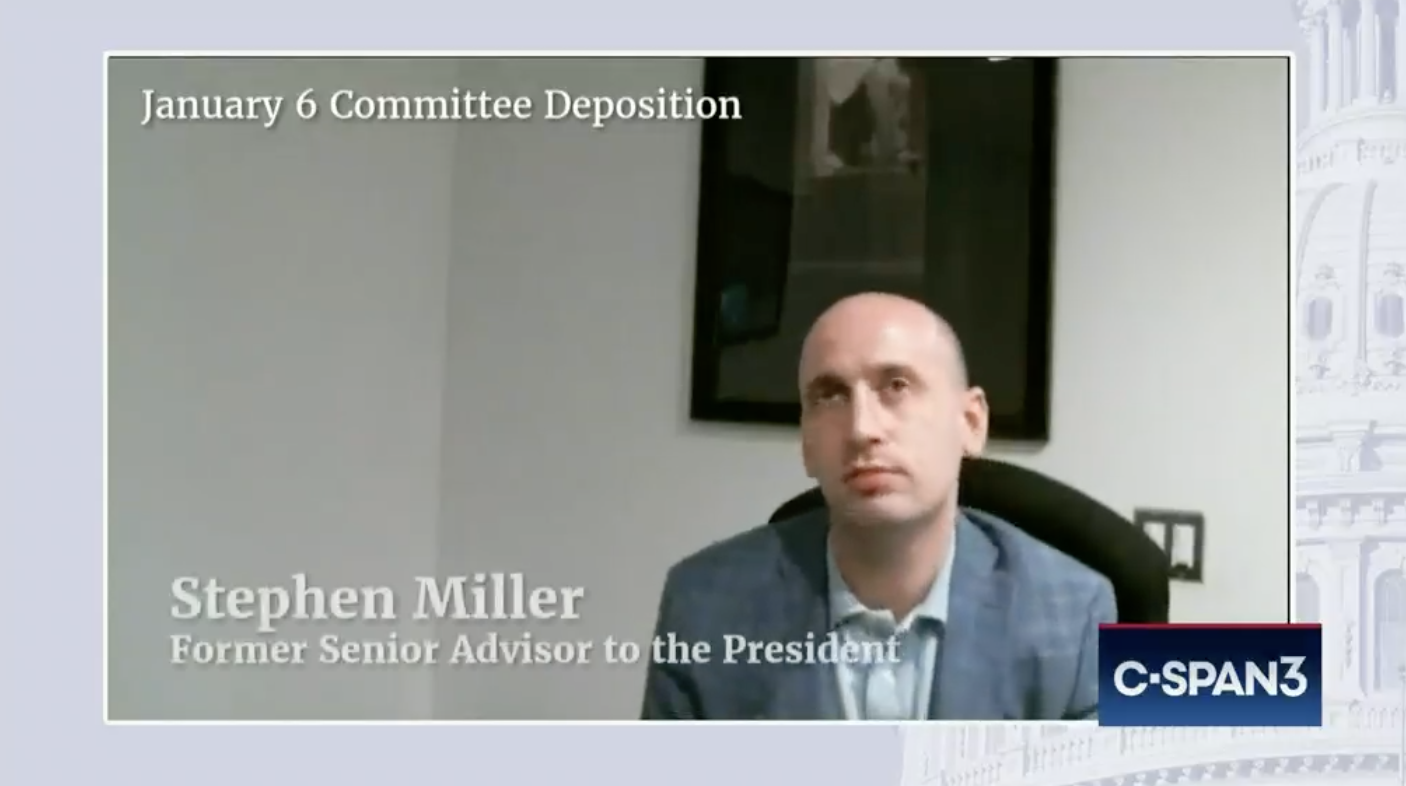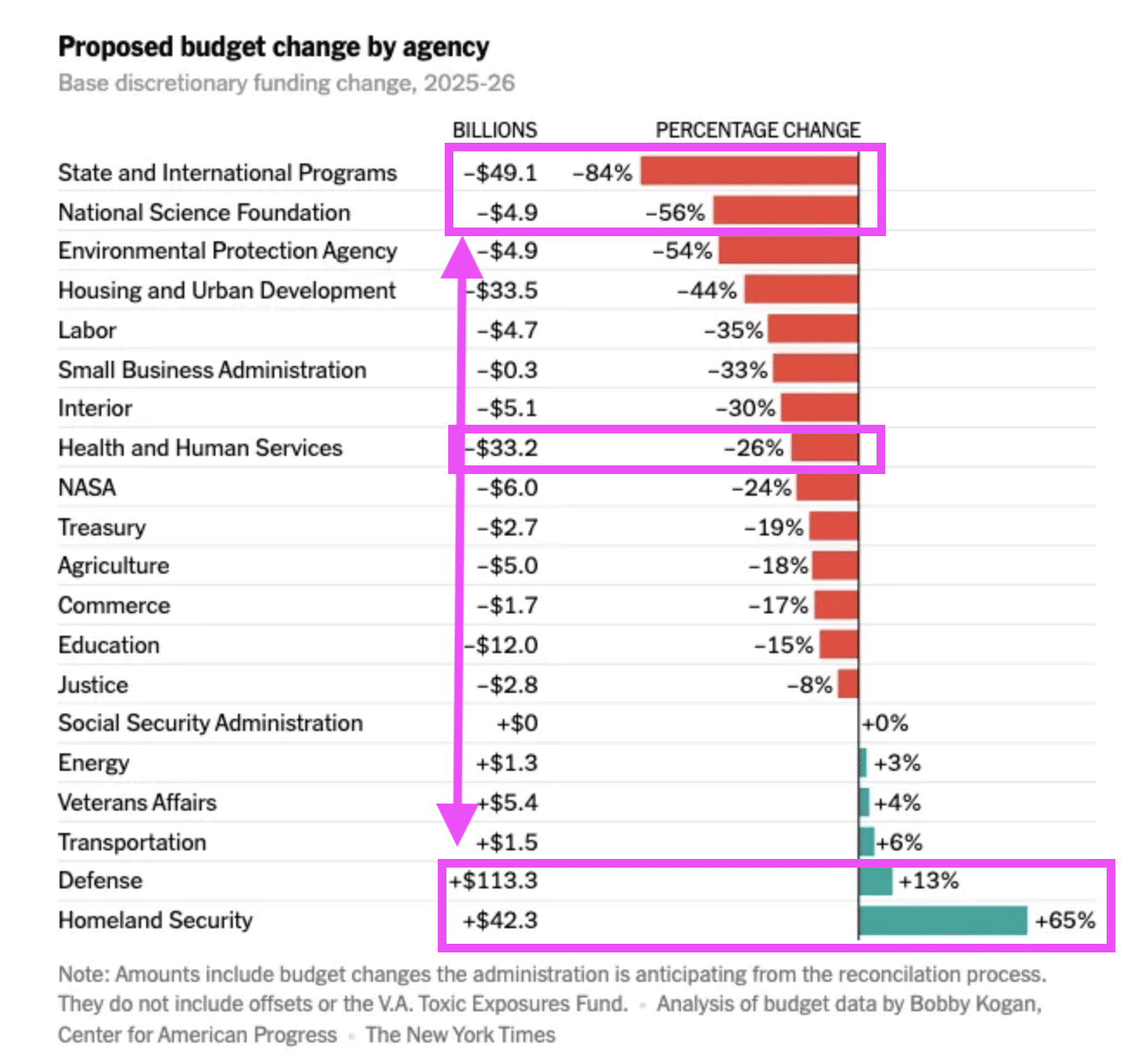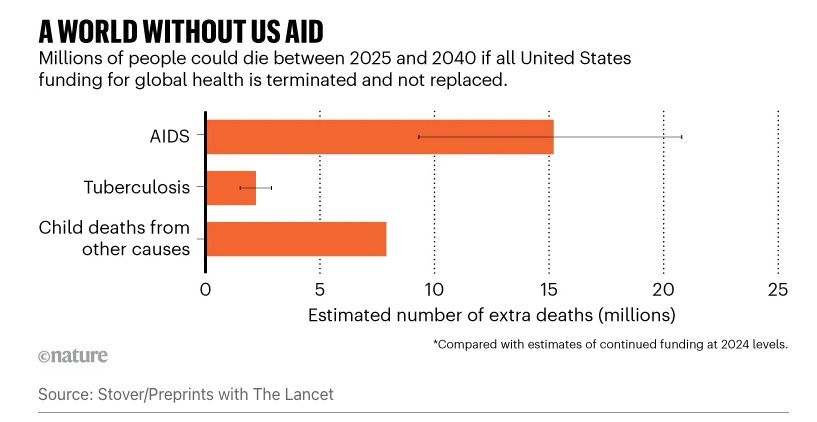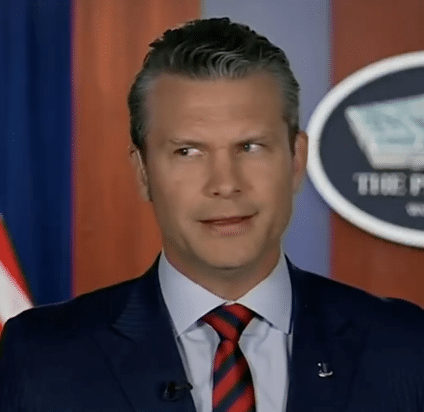The Comings and Goings from Stephen Miller’s Gulag
Let’s start with the good news, not least because the good news may explain some of the bad news.
Habeas Corpus still exists in the US
In the last several weeks, judges in Vermont and Alexandria, VA, have ordered the government to free Mohsen Mahdawi, Rumeysa Ozturk, and Badar Khan Suri from custody. Their release does not end their legal fight over whether Trump can deport them for their First Amendment protected speech or not. But they will be able to continue their academic work, live at home, and make public comments while those legal proceedings go forward.
Now the horrible news.
As noted above, some of the releases were ordered by Federal judges in Vermont — William Sessions in the case of Ozturk and Geoffrey Crawford in the case of Mahdawi.
Yesterday, detained Harvard genetics researcher Kseniia Petrova had a hearing before a third Vermont judge, Chief Judge Christina Reiss. Anna Bower live-skeeted it here.
Petrova’s case differs from the others in several ways. She wasn’t detained for her First Amendment protected speech. Rather, she was detained because she didn’t declare frog samples from France she was carrying back to Harvard for her research at the border.
And while the government’s public actions to date — a quick transfer for Petrova to Louisiana in a transparent attempt to make any habeas corpus challenge more difficult — look quite similar, the legal posture was different for several reasons: a Customs and Border Patrol Officer had reportedly canceled her visa themselves upon discovering the samples (an offense that is normally let off with a warning). Petrova had agreed to leave the country, so long as she wasn’t deported to her native Russia, where she credibly expects she’d be harshly persecuted for her speech there. Because of that threat, Petrova also started applying for asylum.
But as laid out in the hearing yesterday, Petrova had always said she’d be willing to leave for France, and the government still publicly maintained they wanted to deport her to Russia.
Judge Reiss noted that she had reviewed the statute laying out the grounds for customs officers to find someone inadmissible to the United States, and “I don’t see anything about customs violations.”
Jeffrey M. Hartman, an attorney representing the Department of Justice, said “it’s the secretary of state’s authority” to cancel a visa, and that the secretary has delegated that authority to customs officials.
“The C.B.P. office was our first line of defense against unknown biological materials from a foreign national out of a port of entry,” he said.
Mr. Hartman argued that the federal court in Vermont had no jurisdiction over Ms. Petrova’s detention. He said Ms. Petrova may contest her detention, but only in an immigration court in Louisiana, where ICE is holding her.
“It’s not something that a district court can entertain,” he said. “We think the proper venue for that question is Louisiana, where she is detained and where her custodian is.”
“But she is only detained there because you moved her,” said the judge.
Judge Reiss asked the government to clarify whether or not it planned to deport Ms. Petrova to Russia.
“You are asking for her removal to Russia?” she asked.
“Yes, your honor,” Mr. Hartman replied.
Shortly after telling Judge Reiss that the government wanted to deport Petrova to Russia, DOJ instead unsealed a criminal complaint against Petrova, obtained on Monday (the first business day after Ozturk’s release), saying they actually want to prosecute Petrova for crimes that can impose up to a 20-year sentence.
Two months after detaining Petrova, as judges in Vermont free targets of Stephen Miller’s witch hunt and as problems with the unilateral revocation of her visa become clear, the government suddenly decided Petrova engaged in smuggling, without taking the time to present the case to a grand jury first.
The key paragraph of this complaint claims that Petrova prevaricated when asked about carrying biological materials and whether she knew she had to declare them, first denying she had biological material, then admitting she did.
PETROVA was asked to present herself at the secondary inspection area. She was wearing a backpack and carrying a plastic bag. When questioned about her luggage, PETROVA denied carrying any biological material. When the CBP officer asked her again, PETROVA identified the plastic bag she was carrying as having biological material. An inspection of the bag revealed a foam box containing frog embryos in microcentrifuges, as well as embryo slides. A CBP officer interviewed PETROVA under oath and conducted a manual review of her cell phone. PETROVA admitted that the items in her duffle bag and in the plastic bag were biological specimens. PETROVA was asked if she knew that she was supposed to declare biological material when entering the United States. After a long pause, she answered she was not sure. The CBP officer then confronted PETROVA with a text message on her phone from an individual who she identified as her colleague at a Boston-area medical school, where she is currently a research assistant. The individual wrote, “if you bring samples or antibody back make sure you get the permission etc. Like that link I sent to leon-/group chat about frog embryos because TSA went through my bags at customs in Boston.” When asked again whether she knew she was supposed to declare the items, she responded that she “was not sure about embryos specifically”
Even though the government maintains that they have to deport Petrova to Russia, not France, they make much of her past work in a Russian research lab, as if she’s some Russian threat, even while treating her fear of deportation as feigned.
11. PETROVA told CBP agents that she was educated in Russia and worked at the Moscow Center for Genetics as a bioinformatician of genetic disorders from 2016 to 2023. When asked if this was a Russian government institution, she replied that about half of the scientists worked for the Russian government and the other half for hospitals. She also stated that she was most recently employed by the Institute of Genetic Biology in Moscow from 2023 to 2024.
Again, on its face, this looks like the government’s bid to ratchet up its attack in the face of embarrassing setbacks in Petrova’s case. I wonder if they would have unsealed this if not for what looked like a pending loss before Judge Reiss and possibly even this powerful op-ed from Petrova, published by NYT on Tuesday, implicitly likening the plight of scientists in Russia to increasing threats in the US.
The political environment in Russia made it hard to do science because everything was unpredictable. The war in Ukraine affected scientists’ ability to get funding and materials; we worried that our male colleagues might be conscripted. That type of uncertainty is incompatible with science, which requires the ability to plan what type of experiments and research you will do a year into the future. I fear that if I return to Russia I will be arrested.
I am hesitant to comment broadly on what it’s like for scientists now in America because I have only limited information about what is going on outside of this detention center. What I do know is that my colleagues, many of whom are, like me, foreign scientists, are terrified of being detained or having their visa status revoked.
One more thing may have convinced the government to charge Petrova, though.
As pattern jury instructions on the charge lay out, to prove the case against Petrova, the government must prove that Petrova had the intent of defrauding the government.
To find the defendant guilty of this crime you must be convinced that the government has proved each of the following beyond a reasonable doubt:
[snip]
Third: the defendant acted knowingly and willfully with intent to defraud the United States. [It is not necessary, however, to prove that any tax or duty was owed on the merchandise.]
[Fourth: the defendant did something which was a substantial step toward committing [crime charged], with all of you agreeing as to what constituted the substantial step. Mere preparation is not a substantial step toward committing [crime charged], rather the government must prove that the defendant, with the intent of committing [crime charged], did some overt act adapted to, approximating, and which in the ordinary and likely course of things would result in, the commission of [crime charged].
To act with “intent to defraud” means to act with intent to deceive or cheat someone.
To prove this, the government will have to call the people with whom Petrova discussed how to address the samples at customs.
9. Another text message on PETROVA’s phone contained the following question from her medical school colleague: “What is your plan to pass the American [referred to as US in PETROVA’s interview] Customs with samples? This is the most delicate place of the trajectory.”
10. The CBP officer confronted PETROVA with another text message between her and another individual who she identified as her principal investigator in which she was asked by this individual: “what is your plan for getting through customs with samples?” To that question, PETROVA replied, “No plan yet. I won’t be able to swallow them.
That is, this will put Petrova’s lab on trial, with her colleagues either forced to testify against her or possibly implicated with it, as if there’s some great conspiracy against the United States to … do science.
DOJ unsealed this complaint on Tuesday, after Harvard expanded its lawsuit against the US, adding the retaliation Trump has taken in response to Harvard’s initial lawsuit.
7. In response to Harvard’s defense of its own constitutional freedoms, the federal Government announced that it was freezing “$2.2 billion in multiyear grants and $60M in multiyear contract value to Harvard University” (the “April 14 Freeze Order,” attached as Exhibit C). Ex. C at 2. Within hours of the April 14 Freeze Order, Harvard began receiving stop work orders. And the situation is getting worse. On April 20, it was reported that the Government is “planning to pull an additional $1 billion of [Harvard]’s funding for health research.”6 On May 5, the Secretary of Education, purporting to speak on behalf of every agency and department, announced an “end of new grants for the University,” and directed that “Harvard should no longer seek GRANTS from the federal government, since none will be provided,” and “Harvard will cease to be a publicly funded institution” (the “May 5 Letter” or “May 5 Freeze Order,” attached as Exhibit D). Ex. D at 3-4. That announcement reiterated the Government’s earlier demands and said it was based, among other things, on the Government’s assessment of Harvard’s “academic rigor,” admissions requirements and practices, grading systems, faculty hiring, teaching, and course construction. Id. at 2. The April 14 Freeze Order and May 5 Freeze Order are collectively referred to herein as the “Freeze Orders.”
8. Following in the footsteps of the April 14 and May 5 Freeze Orders, Harvard began, starting on May 6, to receive institution-wide termination notices for various agencies, invoking the earlier April 11 and 14 communications. On May 6, for example, the National Institutes of Health sent Harvard a letter stating that it was terminating all of Harvard’s grant funding from that agency based on “the University’s unwillingness to take corrective action or implement necessary reforms” and that Harvard’s grant “awards no longer effectuate agency priorities” because of “recent events at Harvard University involving antisemitic action” and “Harvard’s ongoing inaction in the face of repeated and severe harassment and targeting of Jewish students” (the “May 6 Letter” or “May 6 NIH Termination Letter,” attached as Exhibit E). Ex. E at 2-3. The letter states that “NIH generally will suspend (rather than immediately terminate) a grant and allow the recipient an opportunity to take appropriate corrective action,” but “no corrective action is possible here.” Id. at 3.
And the escalation continues. In the last week, Trump announced more cuts on funding to Harvard as well as an EEOC investigation into a faculty that underrepresents women and people of color, claiming it discriminates against people who look like Stephen Miller.
Charging Petrova for daring to commit science in the United States is undoubtedly a way to rescue a legally problematic case against her. It’s also another way to put Harvard’s defense of scholarship on trial.
Perhaps it is an auspicious sign, then, that British professors just determined that a copy of the Magna Carta that Harvard bought for $30 in 1946, thinking it was a copy made in 1327, is in fact a seventh original of the 1300 document.
British researchers have determined that a “copy” of the Magna Carta owned by the Harvard Law School Library is a rare original issued by England’s King Edward I in 1300. The copy was previously thought to date back to 1327.
The Magna Carta, issued by King John in 1215, established that the monarch is a subject under the law, just like any other citizen. It was reissued a number of times throughout the thirteenth century, and was released for the final time with the king’s seal in 1300.
Seven original charters issued by King Edward I are known to exist. Six copies are in the United Kingdom, while Harvard Law School’s Magna Carta is now the only known copy abroad.
The discovery was made by David Carpenter, a professor at King’s College London, and Nicholas Vincent, a professor at the University of East Anglia. Carpenter, a Magna Carta expert, was researching unofficial copies of the charter and suspected the Law School’s copy was actually an original. He then worked with Vincent, another Magna Carta expert, to investigate further.
The charter, an agreement between the King of England and rebel barons, gave way to the idea of a limited government and inspired the writers of the U.S. Constitution and Bill of Rights. In a joint press release between the three universities, Vincent called it “the most famous single document in the history of the world.”
All this time, an original document enshrining habeas corpus — the legal right Petrova was asserting, the legal right that got Mahdawi, Ozturk, and Suri released, the legal right Stephen Miller wants to suspend — was sitting right there in Boston, where the fight for American freedom started.
There will be multiple other developments in Stephen Miller’s deportation regime today.
SCOTUS will review whether judges can issue nationwide injunctions on matters — birthright citizenship — that necessary apply nationwide.
Hannah Dugan
Judge Hannah Dugan will be arraigned in Milwaukee on an indictment obtained Tuesday. The indictment claims, with no context, that Dugan “falsely [told the ICE team] they needed a judicial warrant to effective the arrest of [Eduardo Flores-Ruiz].” That claim goes beyond anything mentioned in the complaint and likely misrepresents the intent of Dugan’s comment. The indictment similarly provides no context for Dugan’s order directing the ICE team to go to the Chief Judge’s office, who was still working on a policy covering such issues; nor does it mention that there was no policy that Dugan violated.
The indictment also makes clear that the grand jury obtained testimony from Flores-Ruiz’ attorney, claiming that Dugan,
advis[ed] E.F.R.’s counsel that E.F.R. could appear by “Zoom” for his next court date.
But having spoken to Flores-Ruiz’ attorney, there’s still no allegation that Dugan told her that ICE was in the courthouse. This means the government lacks that kind of evidence that might substantiate corrupt intent, making it a much weaker case than the one against Judge Shelly Joseph back in 2019.
Nothing about this case has gotten stronger at the indictment stage. It still appears to lack any evidence about Dugan’s intent.
That said, the indictment is not a ham sandwich either. The government has clearly provided probable cause that a person who knew of an administrative arrest warrant made it difficult for ICE to arrest someone.
There’s no evidence that prosecutors explained why Dugan’s question about an administrative versus judicial warrant is actually exculpatory. Likewise, there’s no evidence that prosecutors told the grand jury that two DEA agents from the ICE team had the opportunity to detain Flores-Ruiz in the hallway there were staking out. And the matter of judicial immunity, which was left for an appellate phase that never happened in Joseph’s case (the Biden DOJ dismissed the case), would not have been briefed to the grand jury.
The latter detail, judicial immunity, may be litigated more aggressively than it was for Judge Joseph because of actions Trump took.
Yesterday, Dugan filed a motion to dismiss the case based on judicial immunity. The motion cited Trump’s own successful attempt to avoid any trial based on his claim of immunity three times.
The problems with this prosecution are legion, but most immediately, the government cannot prosecute Judge Dugan because she is entitled to judicial immunity for her official acts. Immunity is not a defense to the prosecution to be determined later by a jury or court; it is an absolute bar to the prosecution at the outset. See Trump v. United States, 603 U.S. 593, 630 (2024).
[snip]
Judge Dugan’s subjective motivations are irrelevant to immunity. “Judges are entitled to absolute immunity for their judicial acts, without regard to the motive with which those acts are allegedly performed.” Id.; accord Trump v. United States, 603 U.S. at 618 (“In dividing official from unofficial conduct, courts may not inquire into the President’s motives”).
[snip]
Judge Dugan therefore has both immunity from conviction and immunity from prosecution. “The essence of immunity ‘is its possessor’s entitlement not to have to answer for [her] conduct’ in court.” Trump, 603 U.S. at 630, quoting Mitchell v. Forsyth, 472 U.S. 511, 525 (1985); Mitchell, 472 U.S. at 526 (“The entitlement is an immunity from suit rather than a mere defense to liability; and like an absolute immunity, it is effectively lost if a case is erroneously permitted to go to trial.”) (emphasis in original)
This last citation adopts John Sauer’s own reliance on civil, not criminal, liability. A citation to Mitchell itself would be inapt (a criticism some people are making); but Dugan is citing the current Solicitor General’s inapt reliance on it, not the case directly. Effectively, Dugan is saying that if Trump can avoid trial for anything covered by his official duties, than so can Dugan.
Ras Baraka
Ras Baraka will also have a hearing in his prosecution for misdemeanor trespassing today. As with Dugan’s case, there’s reason to believe Trump’s public comments about the case are overblown.
To substantiate the misdemeanor trespassing charge against him, the complaint against Newark’s Mayor does not make the claims that Alina Habba made publicly, that Baraka was repeatedly asked to leave. Rather, HSI Special Agent in Charge Ricky Patel relied only on the no trespassing signs and the presence of security guards.
3. The Delaney Hall Facility is surrounded by chain-link fences and is accessible only through granted access. In addition to maintaining security, it likewise displays No Trespassing signage.
But video shows that after security guards asked Baraka to leave (after first letting him in), he did. The arrest happened on public ground, not in the facility itself. The video undermines the complaint as attested.
In advance of today’s hearing, the AUSA who presented the case on Friday was swapped out for Alina Habba herself and another AUSA, often a sign under this Administration that an attorney wasn’t telling the lies the government wants to tell.
Having made that swap, Habba tried to get today’s hearing canceled (though she couldn’t even manage to get the date right!), so they could move right to trial.
The Government writes with respect to the upcoming preliminary hearing scheduled for Thursday, May 12, 2025. The Government does not believe that a preliminary hearing is warranted in this case. Under Fed. R. Crim. P. 5.1(a), “[i]f a defendant is charged with an offense other than a petty offense, a magistrate judge must conduct a preliminary hearing unless” certain conditions are satisfied. Fed. R. Crim. P. 5.1(a) (emphasis added). Here, the charge is a petty offense. Under state law, assimilated under 18 U.S.C. § 13, the statutory maximum sentence is 30 days. That means the offense is a class C misdemeanor under federal law. See 18 U.S.C. § 3559(a). That, in turn, means that it’s a “petty offense” under federal law. See 18 U.S.C. § 19. Defendant, therefore, is not entitled to a preliminary hearing under Rule 5.1. See United States v. Radin, No. 16 Cr. 528, 2017 U.S. Dist. LEXIS 77783, 2017 WL 2226595 (S.D.N.Y. May 22, 2017).
The Government requests that the Court cancel the preliminary hearing and schedule this matter for trial at an appropriate time. [my emphasis]
Magistrate Judge André Espinosa, to whom Patel didn’t disclose that Baraka left the facilities when asked, was having none of that. He granted Habba’s request to vacate a preliminary hearing as unnecessary, but in the same order, granted Baraka’s request for a status conference to be held at the previously scheduled time.
WHEREAS the United States of America (the “Government”), by way of a May 13, 2025 letter brief emailed to the Court and all counsel, now seeks cancellation of that hearing, arguing that it is not required under Federal Rule of Criminal Procedure Rule 5.1; and
WHEREAS the clear language of Rule 5.1(a) does not require a preliminary hearing when a defendant is charged with a petty offense; and
WHEREAS the offense charged in this action carries a maximum penalty of 30 days’ imprisonment, making it a Class C misdemeanor, see 18 U.S.C. § 3559(a), and constituting a “petty offense” under federal law. See 18 U.S.C. § 19; and
WHEREAS, nevertheless, by way of email correspondence to the Court, copying counsel for the Government, counsel for Defendant has sought a status conference on the same date and at the same time, if the preliminary hearing does not proceed; therefore
IT IS on this 13th day of May 2025,
ORDERED that the Court’s May 9, 2025 oral Order setting a preliminary hearing in this action for May 15, 2025, at 10:00 a.m., is VACATED; and it is further
ORDERED that the Court will hold a status conference in this action on May 15, 2025, at 10:00 a.m., in Courtroom 2D of the Martin Luther King Courthouse, in Newark, at which all counsel shall appear.
As Josh Gerstein observed, in last week’s hearing, in response to a request from Baraka, Espinosa issued a warning about public statements that violate local rules.
COME ON ALINA — In Baraka hearing, magistrate cautioned federal officials about public statements, by POLITICO’s Ry Rivard and Josh Gerstein: Before Newark Mayor Ras Baraka was released from custody on Friday, a federal magistrate quickly determined he was not a flight risk and cautioned federal officials against making out-of-court statements about the mayor, who is also running for New Jersey governor, according to a newly-released transcript of the extraordinary virtual hearing … During the 18-minute videoconference, Baraka’s attorney Raymond Brown asked [U.S. Magistrate André M.] Espinosa to warn Trump administration officials against making derogatory public statements about his client … Earlier in the day, interim U.S. Attorney for New Jersey Alina Habba had posted on social media that Baraka had “willingly chosen to disregard the law” before he was arrested at the immigration detention center he was protesting and seeking to inspect along with three members of New Jersey’s congressional delegation. Espinosa said to the extent anyone had made such comments, he would “caution them to heed carefully to the rules of professional conduct” and “boundaries of propriety for public comment related to an ongoing investigation and/or prosecution.”
So it may turn out that Trump’s Parking Garage Lawyer, who has a history of struggling with basic lawyering tasks, will get directly warned about her violation of due process even before Pam Bondi or Chad Mizelle or Kristi Noem or Kash Patel. Or maybe Habba will have to warn Noem to shut her yap after DHS continued to attack members of Congress for engaging in oversight of a facility they claim still lacks the proper local permits.
In short, basic due process remains a struggle. But there are some reasons to believe that authentic Magna Carta is an auspicious sign.

